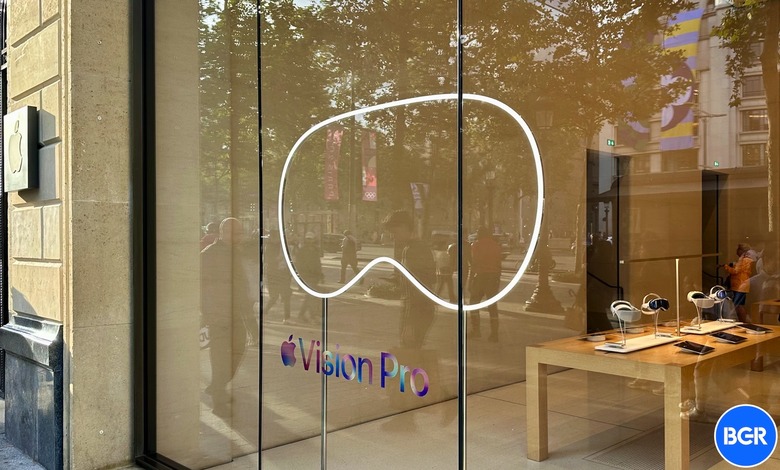Did Apple Cancel Its Sophisticated AR Glasses? Not So Fast
We've been hearing for years that Apple wants to make standalone, sophisticated AR glasses that look just like a regular pair of prescription glasses. These rumors preceded the Vision Pro launch, a device that looks nothing like a pair of nimble AR glasses.
But even before the spatial computer became official, we had two separate types of rumors, each detailing Apple's plans for the AR glasses and the bulkier mixed reality device that would become the Vision Pro.
Since then, we saw reports saying that Apple was pausing plans for the AR glasses, as the technology breakthroughs weren't available. The Vision Pro delivers the concept of a head-worn computer, complete with the operating system and augmented reality experiences. All of that needs to be shrunk to something that looks like regular glasses.
I always said that Apple can't abandon the idea of AR glasses, not when competitors are considering similar products. Standalone AR glasses, or even models connected to the iPhone, will "kill" the smartphone. This was all before the dawn of AI like ChatGPT and Apple Intelligence.
Fast-forward to mid-February, we hear that Apple's plans to make AR glasses are still intact. But we're now in the AI era. I'm more convinced than ever before that Apple is making smart glasses that will culminate in a standalone computer that might replace the iPhone. Apple simply can't afford to abandon the project, especially now that everyone is making AI smart glasses.
Mark Gurman addressed Apple's AR plans in Bloomberg's Power On newsletter. He repeated a previous claim that Apple has scrapped plans for a pair of AR glasses that would be tied via a cable to a Mac:
This device wasn't the dream AR glasses that everyone is waiting for, but it might have served as a nice stopgap product. After all, one of the Vision Pro headset's greatest strengths is its ability to serve as a virtual Mac monitor.
But Apple is going for standalone AR glasses instead. That plan remains "intact," the reporter says:
In any case, it seems like the new boss of Apple's Vision Products Group, John Ternus, doesn't want another flop on his hands. So he is going to take his time and be cautious. I'm told that Apple's long-term goal of standalone AR glasses remains intact, and the company will keep working on underlying technology — like screens and silicon — to help make such a device more feasible.
Gurman is almost always correct about Apple's plans for unreleased devices. But even without him mentioning AR glasses, everyone and their grandmother would expect smart glasses from Apple.
Artificial intelligence is going to be increasingly important, and AI will need eyes and ears no matter what you call it. Whether ChatGPT, Gemini, Apple Intelligence, or DeepSeek, AI will be even more helpful if it can see your surroundings and hear what you hear.
Meta is already ahead of the curve with the Ray-Ban Meta smart glasses. These are hardly sophisticated AR devices. There's no AR whatsoever involved here. But they can snap pics, which is how the AI sees your environment.
Google and Samsung are making similar devices under the Android XR platform. Unlike Meta's the Android goggles have AR features, and some people have already experienced Google AR glass prototypes.
Even Apple is reportedly studying the technology, and we may always see Apple Intelligence smart glasses from Apple before the AR glasses arrive.
Also, let's not forget that former iPhone design guru Jony Ive is working on the first piece of ChatGPT hardware with OpenAI. I think that device will involve a pair of glasses, but that's just my gut feeling. What we know for certain is that Sam Altman wants ChatGPT hardware to replace the iPhone and Android phones.
What I'm getting at is that Apple is forced to develop smart glasses and AR glasses because the arrival of increasingly more advanced and personal AI experiences. Otherwise, it would risk witnessing someone else "killing" the iPhone.
Not to mention that AI advancements might actually help Apple design the chips and components AR glasses need to work without a connection to a nearby phone.
